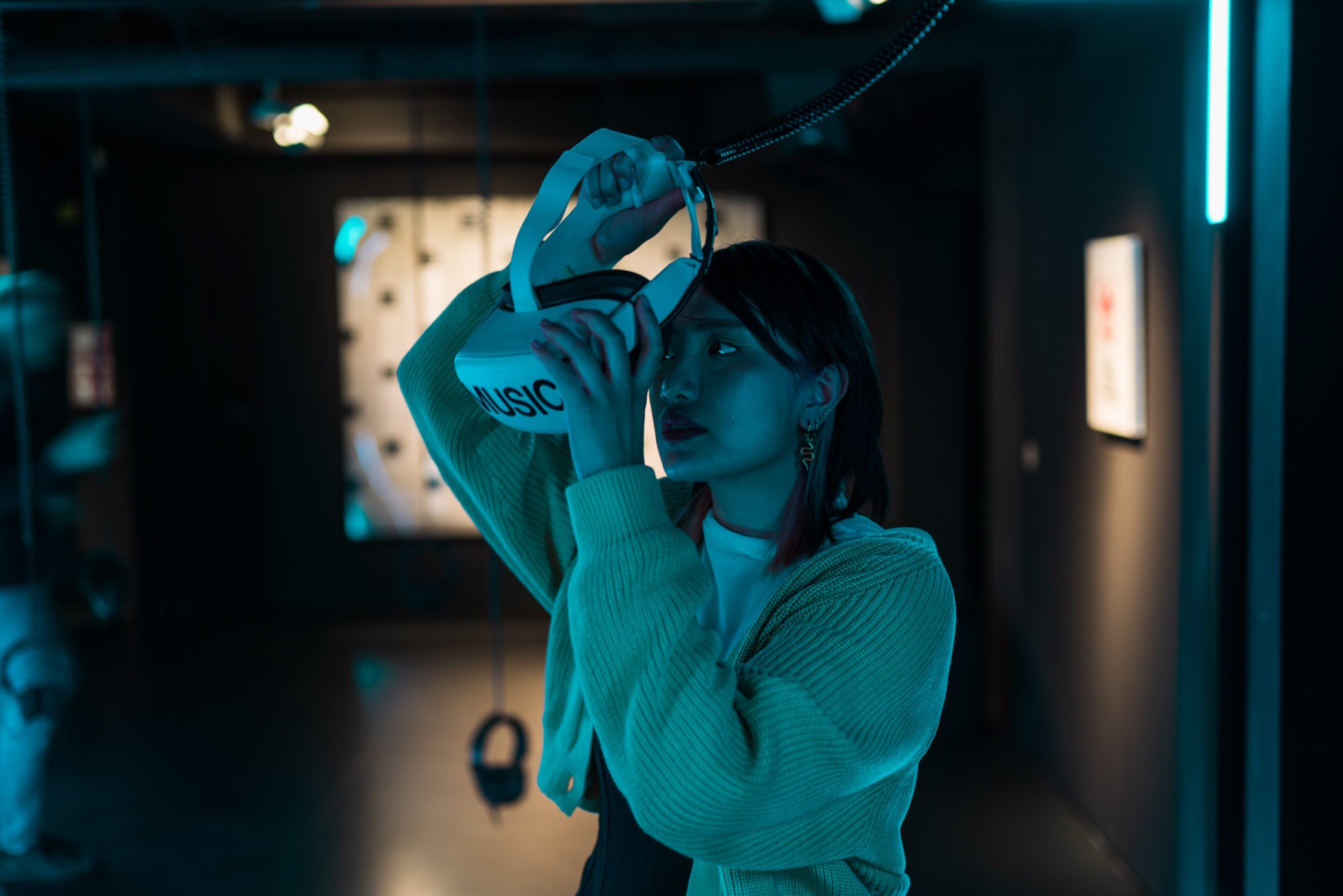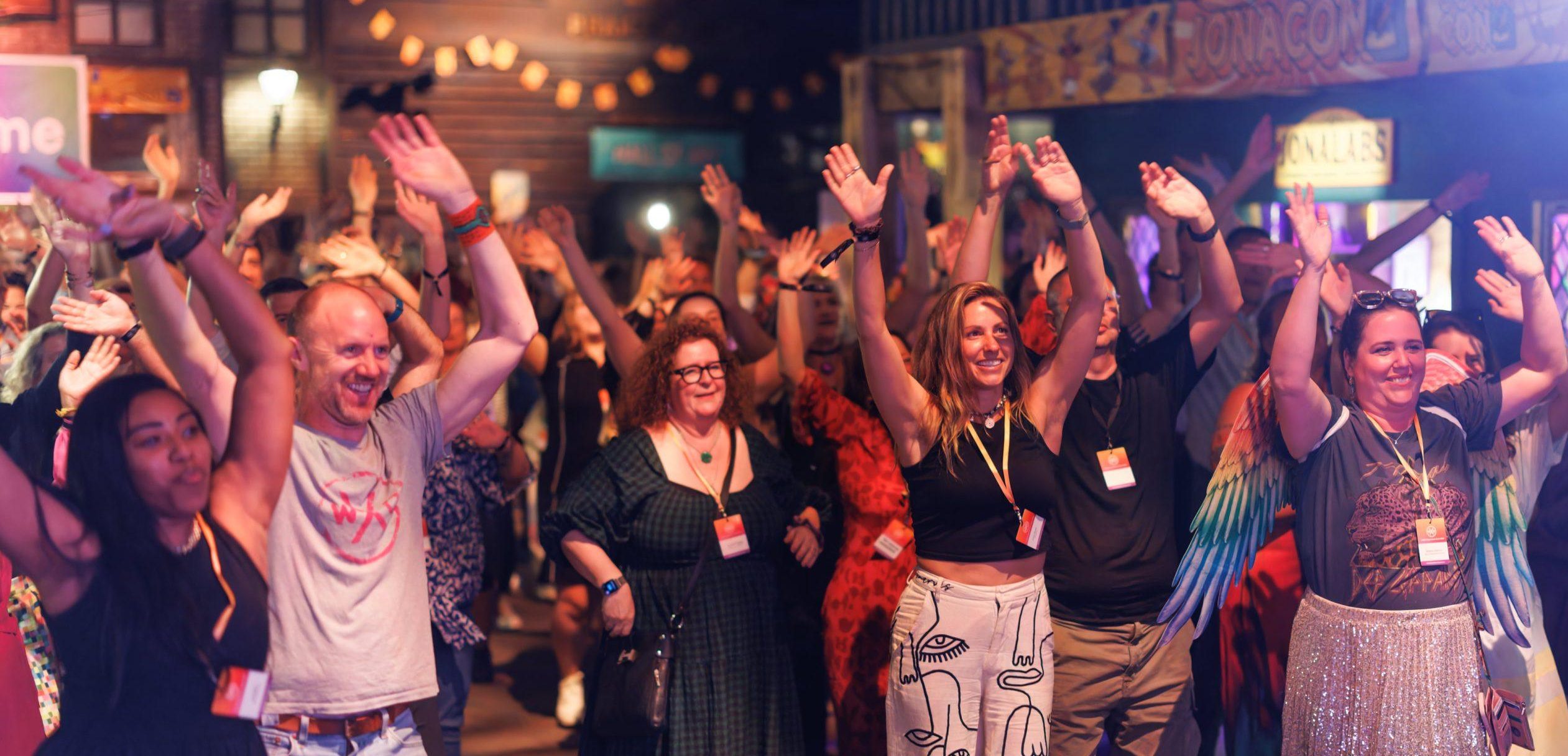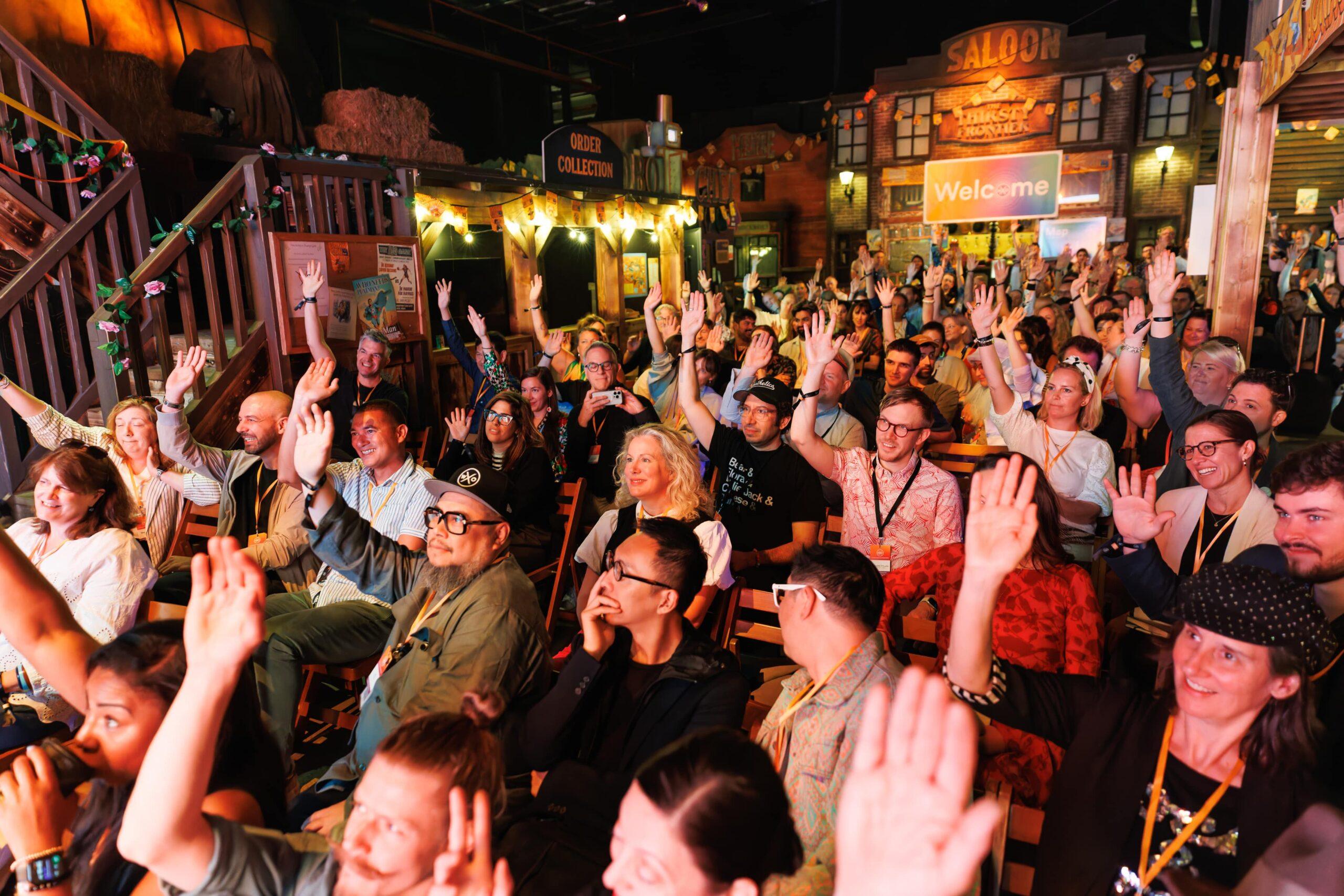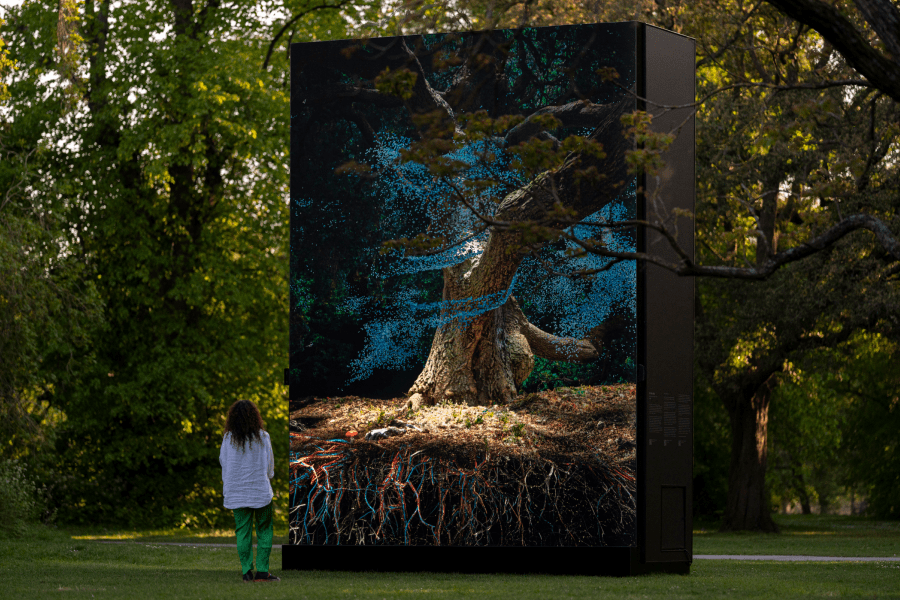WXO Case Studies tell the story of how experts across the Experience Economy have faced challenges, solved problems, and either pioneered new ideas or just figured out how to make something work really well.
We believe these experience-based ideas are highly transferable, and that you should be able to take what they discovered in their sector, and apply it in your area of the Experience Economy. If you’d like to share your own case study with the WXO community, please get in touch.
Dance music fanatics Andreas Tomalla and Alex Azary wanted to create a thriving cultural hub for the global electronic music community in the heart of Frankfurt, and called upon the help of creative agency Atelier Markgraph to turn their dream into a reality.
Eleven years after the initial idea and seven years after presenting the project to the public, their dream was finally realised.
The result is MOMEM – the Museum of Modern Electronic Music – a cultural platform, meeting place and club complete with workshops, discussion events and film evenings reflecting current developments in electronic music. Since opening, the museum has served as a cultural magnet, drawing dance music fans from around the globe to Frankfurt.
The museum’s first exhibit, It’s Simple To Tell What Saved Us From Hell, was dedicated to DJ Sven Väth and curated by Tobias Rehberger. It featured artworks by artists including Banksy and Andreas Gursky, as well as a selection of records from Väth’s 20,000-strong collection.
Stefan Weil, chief creative officer at Atelier Markgraph, tells us how he and his team:
- Set the MOMEM brand up, created the museum space and co-curated the cultural programme with its founders.
- Sought advice from museum heavyweights like Max Hollein – director of the Metropolitan Museum of Art in New York – to help get the idea off the ground.
- Weaved in interactive and immersive technologies into the space to enhance the visitor experience.
- Overcame the challenge of trying to fundraise during a global pandemic to see the project through.
Who’s our Hero?
We believe stories Start With Who – so who’s the hero of this one?
Andreas Tomalla came up with the idea of MOMEM and Alex Azary is the director of the museum. Right from the start I joined them with our atelier, set the brand up and created the space, co-curating the programme with them.
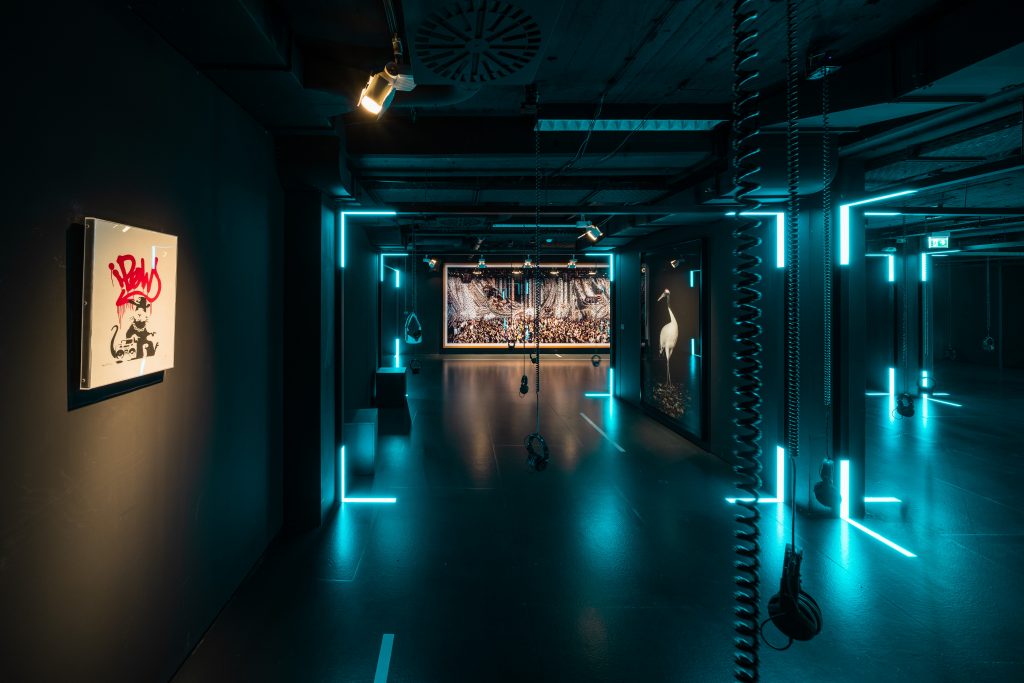
What did the Old World look like?
How were things going, what was good or bad?
The museum opened on 6 April. It took eleven years from the initial idea to the grand opening. Political changes and different perspectives on the idea of urban transformation contributed to the delays.
Who was your Mentor?
Did the people going on this journey have a mentor – either a real person or a way of thinking?
We talked with a lot of people and visited exhibitions relating to modern electronic music in Antwerp, Amsterdam, Paris, Weil and Duesseldorf. We talked with the creators and curators and visited the major electronic music conventions and festivals like Ade, Sonar and Mutek. We also sought advice from colleagues and friends at other museums. People like Max Hollein – director of the Metropolitan Museum of Art in New York – helped get our idea off the ground.
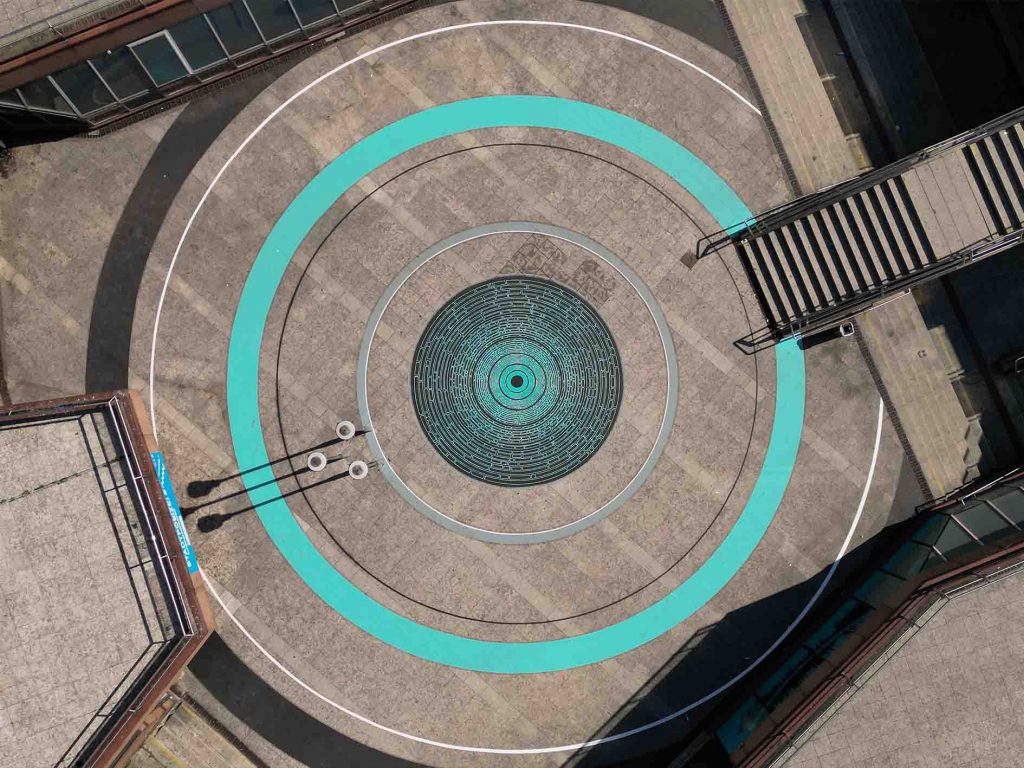
Why did you at first refuse the Call?
Why didn’t you action this before?
The doubts and concerns are always the biggest struggles when you want to create and launch something new. If you are patient then a door will open. Alex was convinced that it would happen one day.

What Trials did you face along the way?
Lack of knowledge? Time? Money? Contacts?
The venue is right in the middle of Frankfurt in the mezzanine to the main subway. There were other more traditional opinions as to where it should be. A lot of people didn’t view it as a cultural venue – slow and low is the tempo for some so-called decision makers. There where many situations where we thought it was over, but here it is!
Sure it’s an ambitious plan, it still is. It’s an undiscovered culture and a very large one too, with lots of genres and subgenres. We faced global issues and fundraising a project like this is a challenge. Our network is huge and growing by the day, which gives us hope for the future.
Who were your Enemies?
There are different levels of ‘enemies’, from those that completely disagreed with us to those that partly disagreed about the venue being in the middle of Frankfurt. We had some more subtile enemies too, like friends that thought their own projects were better and must be supported more than MOMEM.
Who were your Allies?
Who was on your side or helped you achieve your goal?
Many artists from Frankfurt and abroad – people like Jean Michel Jarre and Dieter Meier from Yello, followed by Underworld, Ata, Sven Väth, Roman Flügel, Sophie Saze, Van Ahn, to name but a few. Katja Ruge was very importan too – there are too many to mention them all, but I’d like to thank them all. Some politicians from Frankfurt also helped, because it’s a venue owned by the city.
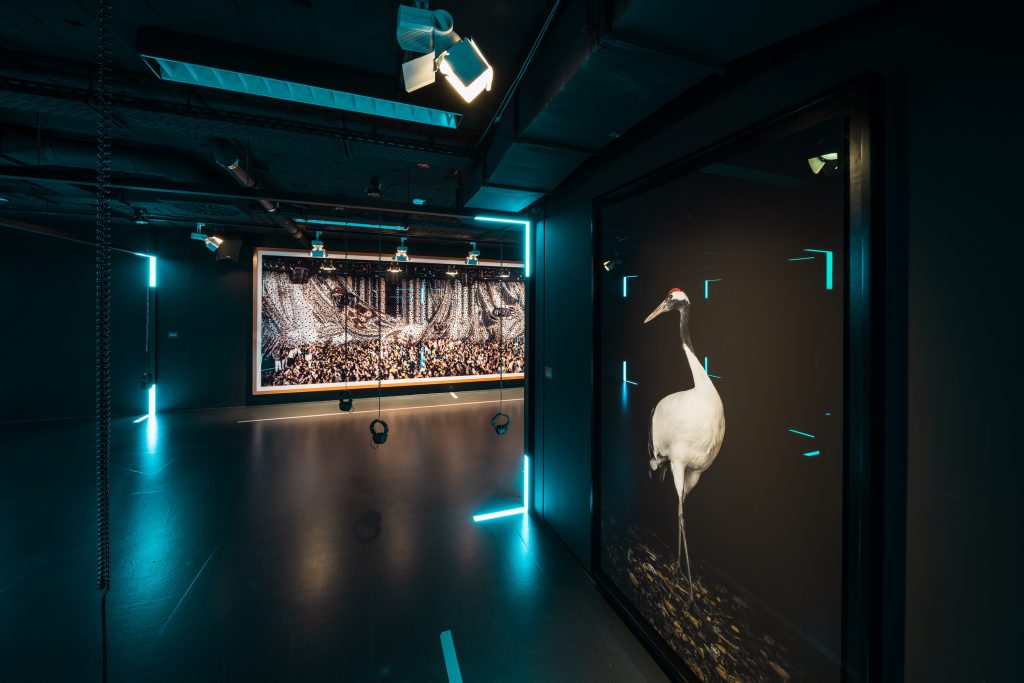
What Tools helped you on this journey?
What’s the closest thing you had to King Arthur’s Sword, or Luke Skywalker’s lightsaber?
The director’s will to get it done. For him there was no alternative – that’s a strong sword. Our belief and knowledge of music and its movements also helped. The song Can You Feel It by Mr. Fingers helped us a lot during the long journey to opening the museum.
What was the biggest Ordeal?
What was the toughest challenge you faced?
Besides Covid and Putin’s invasion of Ukraine, the biggest challenge was the ignorance and mistrust of people that don’t understand the importance of electronic music culture. It’s a new global beat and MOMEM can be a Mecca for all forms, nations and tribes of electronic music. This is our biggest challenge and greatest hope.
Did you have any “Aha!” moments?
Moments of discovery and inspiration… times when instead of the fog of uncertainty, you suddenly saw the way forward?
Right from the start when Alex and Talla asked us to join in and help as brand builders, experience experts and spatial designers, the ‘aha’ moment was there. Music triggers many things. I love music and collect it, and have played the drums since I was a child thanks to my father, who bought me my first first drum kit.
Even today, with the growing field of immersive exhibitions and the technological transformation of spatial experiences, it’s ‘aha’ again. MOMEM is a place for music, movements and motions. Interactive and immersive technologies play an increasingly important role in the way we experience music.
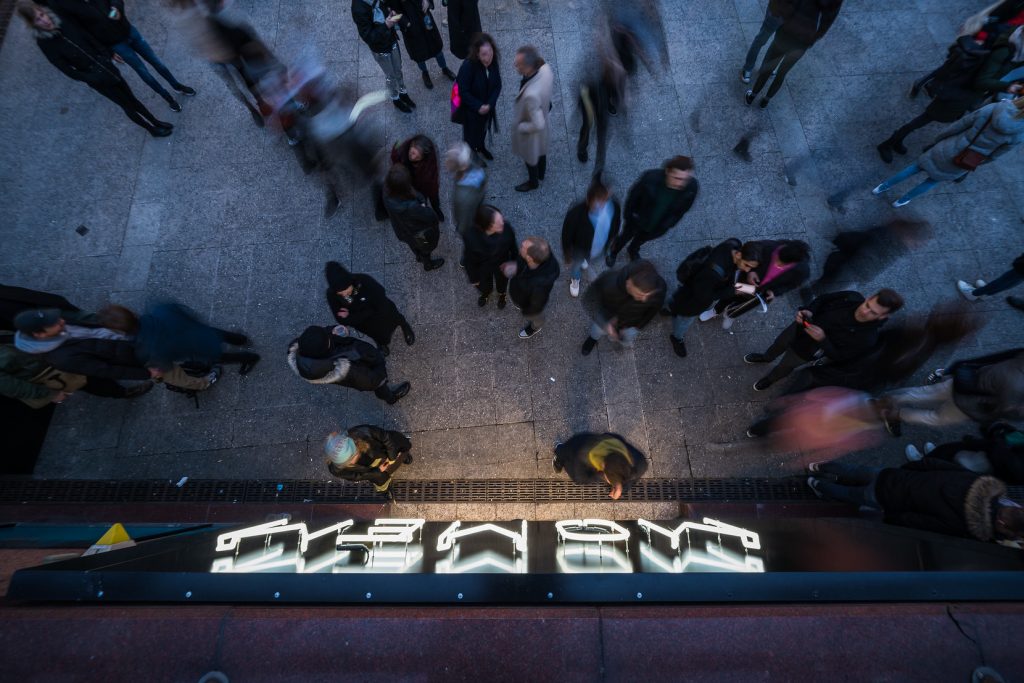
What was the Reward?
What were the results of all your hard work?
The grand opening was an amazing experience that saw 8,000 people gather in the middle of Frankfurt. It was a moment to celebrate the start of a long journey, as this is just the beginning – a debut release. MOMEM is a platform that has many avenues and opportunities, which is the most precious reward.
How does the New World look now?
Now you’ve faced this challenge, what does it mean for you, your organization, and the world?
Music has landed. It’s a new theme for the cultural landscape of Frankfurt. As the museum is in the middle of the city, it helps to give new perspectives on the city’s urban development – transformations beyond transactions. And it should be the start of more to come.
What might the next Journey be?
What might the challenges ahead look like?
The next exhibition and the museum programme for the coming years will be a challenge. It needs to reflect racial and gender diversity. Balancing the global and local aspects is important, too, along with balancing the airtime we give to the experimental new breed and established artists.
For more case studies and learning frameworks from the Experience Economy, check our Case Studies page here.

